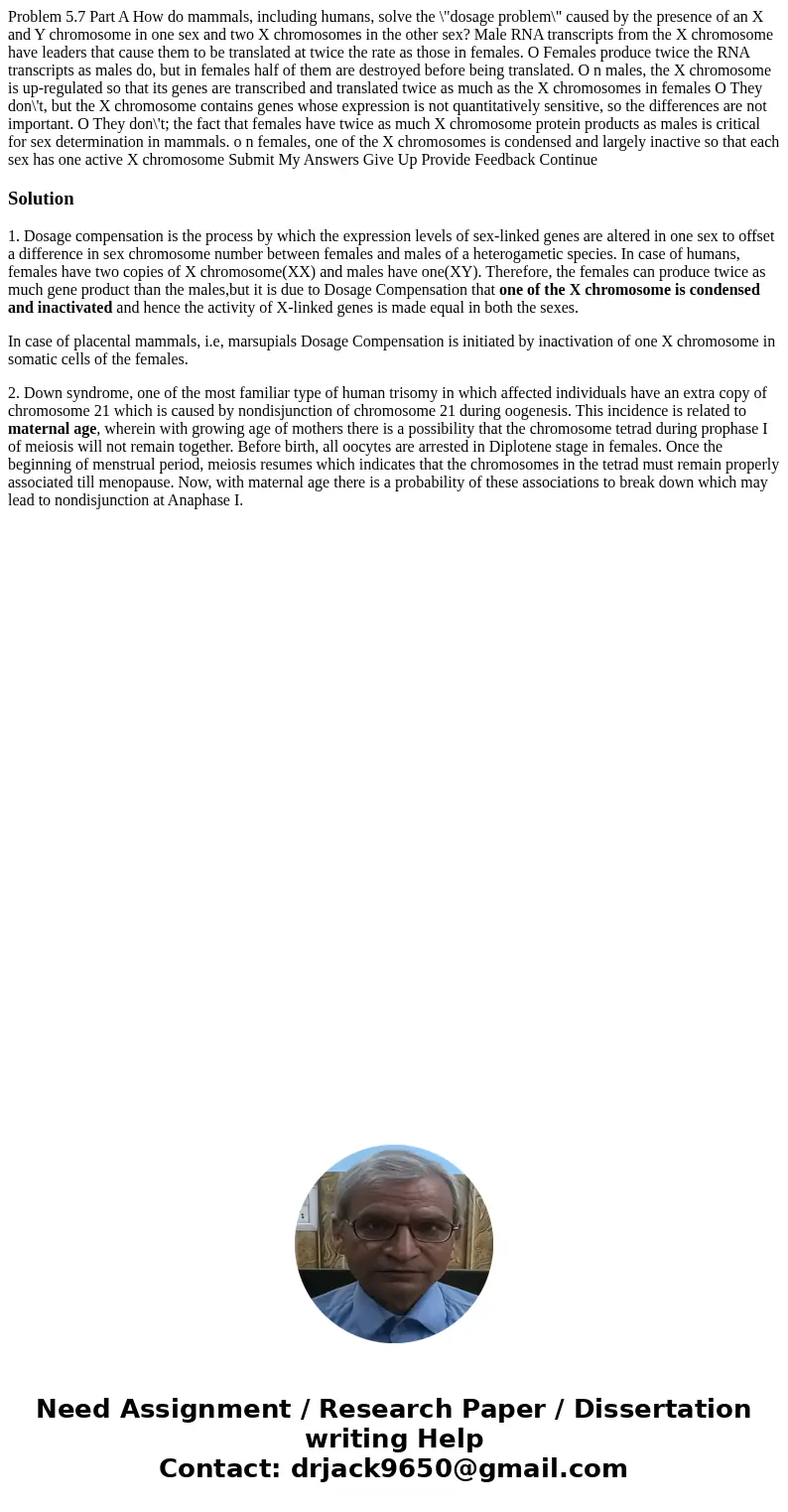Problem 57 Part A How do mammals including humans solve the
Solution
1. Dosage compensation is the process by which the expression levels of sex-linked genes are altered in one sex to offset a difference in sex chromosome number between females and males of a heterogametic species. In case of humans, females have two copies of X chromosome(XX) and males have one(XY). Therefore, the females can produce twice as much gene product than the males,but it is due to Dosage Compensation that one of the X chromosome is condensed and inactivated and hence the activity of X-linked genes is made equal in both the sexes.
In case of placental mammals, i.e, marsupials Dosage Compensation is initiated by inactivation of one X chromosome in somatic cells of the females.
2. Down syndrome, one of the most familiar type of human trisomy in which affected individuals have an extra copy of chromosome 21 which is caused by nondisjunction of chromosome 21 during oogenesis. This incidence is related to maternal age, wherein with growing age of mothers there is a possibility that the chromosome tetrad during prophase I of meiosis will not remain together. Before birth, all oocytes are arrested in Diplotene stage in females. Once the beginning of menstrual period, meiosis resumes which indicates that the chromosomes in the tetrad must remain properly associated till menopause. Now, with maternal age there is a probability of these associations to break down which may lead to nondisjunction at Anaphase I.

 Homework Sourse
Homework Sourse